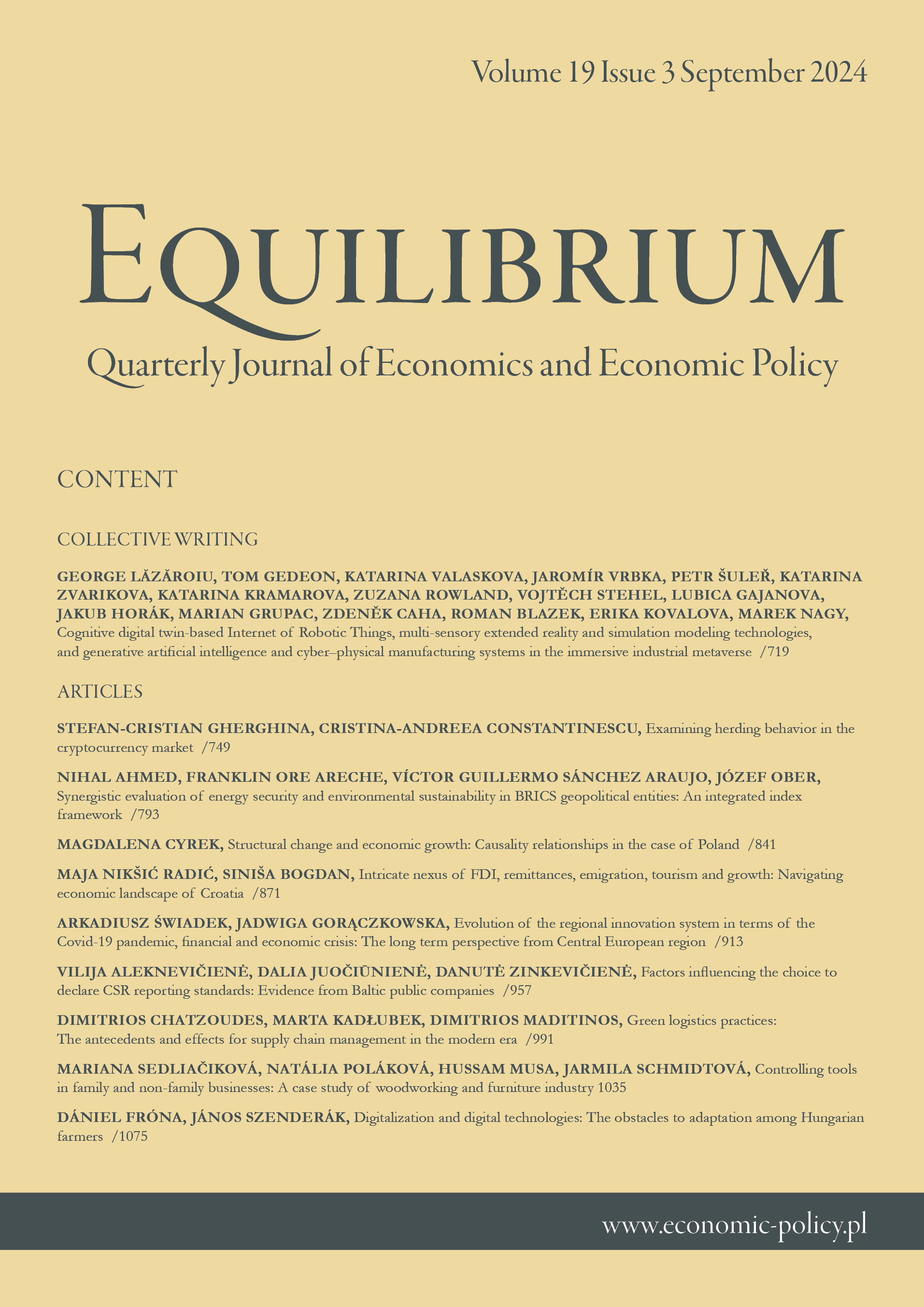Synergistic evaluation of energy security and environmental
sustainability in BRICS geopolitical entities:
An integrated index framework
Synergistic evaluation of energy security and environmental
sustainability in BRICS geopolitical entities:
An integrated index framework
Author(s): Nihal Ahmed, Franklin Ore Areche, Víctor Guillermo Sánchez Araujo, Józef OberSubject(s): Supranational / Global Economy, Energy and Environmental Studies, International relations/trade, Geopolitics
Published by: Instytut Badań Gospodarczych
Keywords: climate change; economics of renewable energy source; BRICS energy security; environ- mental sustainability index, SDGs;
Summary/Abstract: Research background: The increasing demand for energy, driven by economic growth andpopulation expansion, is a critical driver of societal progress. However, the predominantreliance on fossil fuels to meet this demand presents significant challenges, particularly in therapidly developing BRICS nations (Brazil, Russia, India, China, and South Africa). Thesecountries are faced with a complex interplay of energy security and environmental sustaina-bility issues, stemming from their substantial fossil fuel reserves and the associated environ-mental consequences. The challenges manifest as inequalities in access to clean energy, envi-ronmental degradation, and heightened vulnerability to the impacts of climate change. Ad-dressing these multifaceted issues requires a comprehensive approach. Metrics-based strate-gies, which employ aggregated indices derived from a diverse set of energy and environmen-tal indicators, have the potential to provide valuable insights into these complexities. Howev-er, the development of a universally applicable energy sustainability index is complicated bythe heterogeneity of metrics, disparities between countries, and methodological challenges,emphasizing the need for an innovative and holistic analytical framework.Purpose of the article: This study aims to develop a tailored Energy Security and Environ-mental Sustainability Index for BRICS economies to evaluate the robustness of their energysystems and the viability of their ecological practices. The index serves as an instrument toassess the progress of these nations in the Energy and Environment domain and identify areasthat require targeted interventions and improvements.Methods: The construction of the composite ESESI involves the selection of relevant parame-ters and the application of a Multi-Criteria Decision Analysis (MCDA) framework in conjunc-tion with the Weighted Product Method (WPM). To ensure objectivity in the determination ofoptimal and least favorable weights for each indicator, the study employs the MultiplicativeData Envelopment Analysis (MDEA) model.Findings & value added: The ESESI analysis reveals disparities in the progress made byBRICS nations in enhancing energy security, promoting renewable energy deployment, andmitigating environmental impacts. While some countries demonstrate substantial advance-ments, others face challenges in improving energy efficiency and reducing carbon emissions.The study underscores the necessity for tailored policies and targeted infrastructural en-hancements that align with the unique challenges and strengths of each nation. Harnessingthe abundant renewable energy potential through advanced energy trade mechanisms andfostering cross-border investments are identified as crucial strategies for ensuring environ-mental sustainability and long-term energy in the BRICS region. The ESESI provides a valua-ble tool for policymakers and researchers to evaluate the progress of BRICS nations in achiev-ing sustainable energy goals and to inform evidence-based decision-making processes. Byoffering a comprehensive and scientifically rigorous assessment framework, this study con-tributes to the ongoing discourse on sustainable energy transitions and environmental stew-ardship in the context of rapidly developing economies.
Journal: Equilibrium. Quarterly Journal of Economics and Economic Policy
- Issue Year: 19/2024
- Issue No: 3
- Page Range: 793-839
- Page Count: 47
- Language: English

